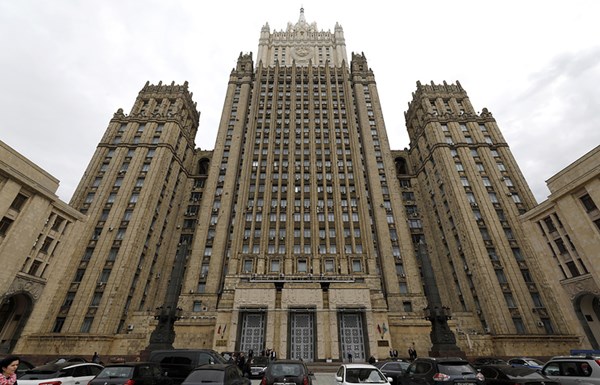Diplomatic war between Russia and the West spirals out of control
Relations between Russia and the West continue to spiral downwards reaching the "bottom" of the Cold War.
In just over a week, Moscow and Western countries mutually expelled more than 140 diplomats and embassy staff, breaking the record of the spy wars of Margaret Thatcher and Ronald Reagan.
On April 15, as part of a package of sanctions for election interference, chemical weapons and cyberattacks, the U.S. declared 10 employees of the Russian embassy persona non grata. They, according to Washington, had ties to the Russian intelligence services.
On the same day, the United States supported Poland, which announced the expulsion of three Russian diplomats.
On April 16, the Russian Foreign Ministry announced that it was expelling 10 U.S. diplomats, denouncing the agreement on the free movement of diplomatic employees and urging U.S. Ambassador John Sullivan to leave Moscow.
On April 17, the Czech Republic announced the expulsion of 18 Russian diplomats. Czech Prime Minister Andrej Babis said the government had evidence that Russian intelligence was involved in the 2014 explosion at an ammunition depot in Vrbetica, which killed two Czech citizens.
The Russians were given 48 hours to leave Prague. On the same day, the Russian Foreign Ministry announced the expulsion of 20 Czech diplomats and gave them only 24 hours to leave the country.
Two days later, on April 19, two Bulgarian diplomats were told to leave Moscow. This decision was a response to the expulsion by Bulgaria of Russian diplomatic workers, a total of 8 people in the last year and a half.
Meanwhile, the Czech Foreign Ministry said that the work of the embassy was paralyzed and on April 21 issued an ultimatum: either Moscow allows all expelled employees to return, or the staff of the embassy in Prague, bloated since the Soviet Union, will be reduced fourfold.
Russia ignored Prague’s demands, and on April 22, the Czech Republic declared 81 people - 35 diplomats and 46 administrative and technical staff - persona non grata. The expulsion of Russians from the Czech Republic was the largest one-off expulsion of diplomats from one country since 1986, when Ronald Reagan sent dozens of Soviet embassy staff to Moscow.
Russia responded by expelling 20 Czech diplomats and administrative staff and demanded the dismissal of 91 Russians from the Czech embassy. The total staff of the Czech diplomatic mission decreased by 111 people.
On the same day, in solidarity with the Czech Republic, Slovakia expelled three Russian diplomats, Latvia two, Estonia and Lithuania one each.
The Russian Foreign Ministry decided to expel five Polish diplomats in response to the expulsion of Russians a week earlier and advised the employees of the embassies of Baltic countries to pack their luggage.
"Diplomatic war is not a new phenomenon, but its scale is certainly impressive now. This did not happen even before the Second World War or during the Cold War," says Andrey Sidorov, head of international organizations and world political processes at Moscow State University's Department of World Policy.
"The situation has reached the bottom. Structurally, it may not be the Cold War that it used to be, but mentally, in terms of atmosphere, it is even worse," said Fyodor Lukyanov, scientific director of the Valdai International Discussion Club.
The Russian leadership seems to have abandoned peaceful strategies and is thinking in wartime categories, says Mark Galeotti, a professor at University College London: "The Russian intelligence community is now operating with a wartime mindset. They think they are in an existential struggle for Russia’s place in the world."
Having transferred to the Ukrainian borders several tens of thousands of soldiers and equipment, and then landing ships and almost the entire Caspian flotilla to the Black Sea, Vladimir Putin got a call from Joe Biden, who invited the Russian president to meet and talk.
But if earlier direct negotiations of presidents would be perceived with hope, now no one can be sure, says Lukyanov: "A hypothetical meeting of Putin-Biden may not give a way to improved relations, but on the contrary - turn into bickering and increased disagreements, after which the relationship will turn into a complete deadlock."
